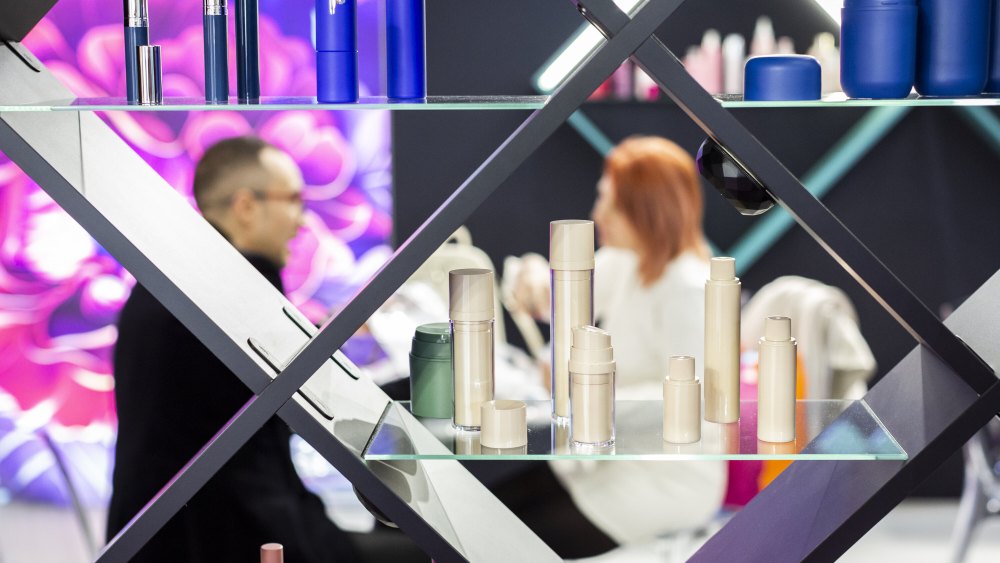Cosmoprof Worldwide Bologna 2025 was a vibrant showcase of beauty innovation, drawing an impressive crowd of over 250,000 attendees from March 20 to 23. Among the myriad of exhibitors, there were distinct trends emerging that highlighted the changing dynamics of the beauty industry. Early-stage brands brought forth a youthful energy that resonated throughout the event, with a notable shift toward a younger consumer base. Additionally, the global rise of K-Beauty continues to redefine beauty standards, transcending traditional skin and body care products to embrace a more comprehensive approach. Furthermore, artificial intelligence is making its mark, influencing product development and retail strategies alike.
The trend of catering to younger audiences was clearly evident, with many brands actively seeking to engage with Gen Z consumers. Jan Nientiedt, director of Douglas’ global partner program, emphasized the importance of discovering fresh, untested brands across various markets. He remarked on how brands are merging health and beauty, a concept that resonates increasingly with younger consumers. Sustainability also surfaced as a key theme, particularly among emerging brands from developing regions. Nientiedt pointed out that there is a growing interest in vegan and plastic-free products, alongside a broadening fascination with natural ingredients for skincare and makeup, suggesting that value-driven purchasing is on the rise.
The presentation of innovative products was especially vibrant among South Korean brands at the show. Gregory Cinque, the beauty buyer for Urban Outfitters in the U.S., was eager to find colorful and playful products representative of Gen Z’s preferences. Kiki Glow emerged as a standout brand, showcasing their vitamin-infused skincare line that cleverly marries aesthetic appeal with efficacy. Notable products, such as their yuzu-based cleanser and strawberry anti-aging cream, are designed to attract a young demographic while promoting anti-aging benefits for consumers up to 40 years old. Kiki Glow’s aim at Cosmoprof was clear: to expand its reach both in Europe and the U.S., after establishing a foothold in the domestic online and travel retail markets.
While Kiki Glow dazzled with its vibrant packaging, another South Korean brand, Hetras, was capturing attention with a different approach. Founded by Seojin Park and Jongkyu Kim, Hetras utilizes a lifestyle-centric angle focused on fragrances and home ambiance products. The brand’s success is due in part to its attractive pricing strategy and diverse product range, which includes hand washes and lotions. Hetras’ thoughtful fusion of quality with affordability positions it well, appealing to consumers looking for accessible luxury experiences in their home and beauty regimes.
Further diversifying the market are brands like Natu Laboratories from Spain, which introduced fragrances designed for the youngest consumers, such as babies and those in the Gen Alpha cohort. Their Seven Kids range aims to cultivate early positive associations with personal care through playful products infused with beneficial ingredients like prebiotics and vitamin B3. With plans to expand into South America, Natu Laboratories is among many brands inspired to grow beyond their original markets, indicating an ongoing trend of international expansion in the beauty industry.
In the midst of product innovation, the integration of artificial intelligence stands out as a game-changer. Companies are beginning to fuse technology with beauty solutions, providing personalized and effective experiences for consumers. For instance, Aramhuvis Co. Ltd. introduced an AI tool that assesses scalp health and recommends suitable hair care products. The Polish supplier, Passage Cosmetics Laboratory, showcased an intriguing blue light-activated hand cream developed through AI analytics. Other brands like Natural You are revolutionizing how consumers approach skincare by utilizing data-driven tools that allow individuals to assess their skin condition through simple selfies. Thus, these technological advancements not only enhance the consumer experience but also make beauty products more tailored and effective.
As Cosmoprof Worldwide Bologna 2025 wrapped up, it was clear that the beauty industry is at a crossroads, influenced by younger consumers, sustainability concerns, and tech innovations. Emerging brands are not only setting trends but pushing the boundaries of what beauty can represent. The infusion of cultural insights from markets as diverse as Europe, Africa, and South Korea paints a picture of an industry that is evolving rapidly. The future of beauty looks bright, with opportunities for growth, innovation, and a deeper connection with consumers who crave authenticity, sustainability, and personalization in their beauty experiences.

